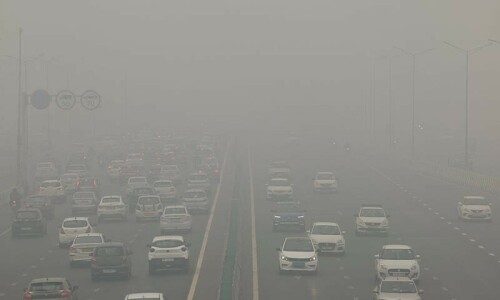THE agreement between Pakistan and China to build a trade link connecting Gwadar’s deep-sea port with Kashgar steps up bilateral economic cooperation. The two countries realise the significance of the new link described as the Pak-China economic corridor. Prime Minister Nawaz Sharif had termed it a “game-changer” for the region before embarking upon his China visit. For China the route has “strategic significance”. The access to the Indian Ocean is why Beijing has been investing in Gwadar for years.
The long-term plan connecting the two countries by road in the beginning and by rail later must boost economic growth in Pakistan and help China meaningfully address its lesser developed western parts. When the project takes off — hopefully soon — the corridor will become a very important economic and energy hub for the entire region. China will be able to move its oil supplies from the Middle East to its western province of Xinjiang and its exports to Europe and Africa much more quickly via Gwadar. Its decision to take control of the Pakistani port had almost committed Beijing to an early completion of the project that it has signed with Islamabad now. Pakistan, on the other hand, can gain hugely from the spread of the manufacturing and refineries along the new route besides the generation of hundreds of thousands of jobs for its young labour force entering the market each year. It should also help it get access for its exports to Central Asia and beyond to Russia at a later stage.
During his meeting with the head of the Chinese company that has been given the control of the Gwadar port, Mr Sharif said he wanted Gwadar to be developed on the model of Hong Kong for which his government would give the city “special status”. The Dr Abdul Malik government has so far come up with no statement which would show it is opposed to the federal plans for the port city on the Makran coast. But the provincial government’s consent for the project isn’t enough. The plan to develop Gwadar as an economic hub largely hinges on peace in Balochistan, which is faced with a full-blown insurgency across the Baloch areas. The security situation is particularly worrisome in Makran. Unless and until the insurgent groups agree to give up arms and enter mainstream politics, doubts about the project will remain. The government must guarantee that the Baloch will be the major stakeholders and beneficiaries of the project. Allaying their concerns is vital to the project.










































